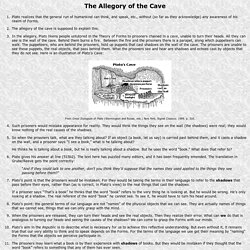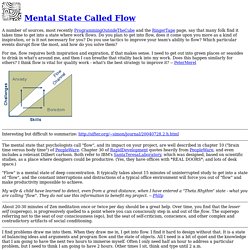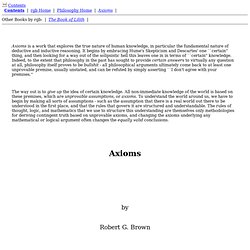

The Analysis of mind, by Bertrand Russell. Ockhams Rasiermesser. Wilhelm von Ockham. Skizze aus einem Summa-logicae-Manuskript von 1341 mit der Inschrift frater Occham iste Ockhams Rasiermesser – auch Prinzip der Parsimonie, lex parsimoniae oder Sparsamkeitsprinzip – ist ein heuristisches Forschungsprinzip aus der Scholastik, das bei der Bildung von erklärenden Hypothesen und Theorien höchstmögliche Sparsamkeit gebietet. Das nach Wilhelm von Ockham (1288–1347) benannte Prinzip findet seine Anwendung in der Wissenschaftstheorie und der wissenschaftlichen Methodik. Vereinfacht ausgedrückt besagt es: Mit der ockhamschen Regel verbunden ist die Forderung, für jeden Untersuchungsgegenstand nur eine einzige hinreichende Erklärung anzuerkennen.
Der praktische Vorteil dieses Prinzips für die Theoriefindung ist, dass Theorien mit wenigen und einfachen Annahmen leichter falsifizierbar sind als solche mit vielen und komplizierten Annahmen. Historische Formulierung und Bezeichnungen[Bearbeiten | Quelltext bearbeiten] Allegory of the Cave. Plato realizes that the general run of humankind can think, and speak, etc., without (so far as they acknowledge) any awareness of his realm of Forms.

The allegory of the cave is supposed to explain this. In the allegory, Plato likens people untutored in the Theory of Forms to prisoners chained in a cave, unable to turn their heads. All they can see is the wall of the cave. Behind them burns a fire. Between the fire and the prisoners there is a parapet, along which puppeteers can walk. Seven Blunders of the World. The Seven Social Sins, sometimes called the Seven Blunders of the World, is a list that Mohandas Karamchand Gandhi published in his weekly newspaper Young India on October 22, 1925.[1] Later, he gave this same list to his grandson Arun Gandhi, written on a piece of paper, on their final day together, shortly before his assassination.[2] The seven sins or blunders are: History and influence[edit] Mahatma Gandhi, who published the list in 1925 as a list of "Seven Social Sins" (1940s photo) The list was first published by Mohandas Karamchand Gandhi in his weekly newspaper Young India on October 22, 1925.[1]

Spotting Emotional Manipulation. Mental State Called Flow. A number of sources, most recently ProgrammingOutsideTheCube and the RingerTape page, say that many folk find it takes time to get into a state where work flows.

Do you plan to get into flow, does it come upon you more as a kind of inspiration, or is it not necessary for you? Do you use tactics to improve your team's ability to flow? Euthyphro dilemma. The dilemma has had a major effect on the philosophical theism of the monotheistic religions, but in a modified form: "Is what is morally good commanded by God because it is morally good, or is it morally good because it is commanded by God?

" Ever since Plato's original discussion, this question has presented a problem for some theists, though others have thought it a false dilemma, and it continues to be an object of theological and philosophical discussion today. The dilemma[edit] Socrates and Euthyphro discuss the nature of piety in Plato's Euthyphro. Axioms. Contents Contents | rgb Home | Philosophy Home | Axioms | Other Books by rgb: | The Book of Lilith | Axioms is a work that explores the true nature of human knowledge, in particular the fundamental nature of deductive and inductive reasoning.

It begins by embracing Hume's Skepticism and Descartes' one ``certain'' thing, and then looking for a way out of the solipsistic hell this leaves one in in terms of ``certain'' knowledge. Indeed, to the extent that philosophy in the past has sought to provide certain answers to virtually any question at all, philosophy itself proves to be bullshit - all philosophical arguments ultimately come back to at least one unprovable premise, usually unstated, and can be refuted by simply asserting ``I don't agree with your premises.'' The way out is to give up the idea of certain knowledge. Psychopathic Traits Linked to Brain Reward System - NIH Research Matters. March 29, 2010 People who scored high on a test that measures impulsive and antisocial traits had exaggerated brain responses to certain “rewards,” like winning money or taking stimulant drugs.

The new study provides evidence that a dysfunctional brain reward system may underlie vulnerability to a personality disorder known as psychopathy. Impulsive and antisocial personality traits correlate with amphetamine-induced dopamine release (red and yellow) in the brain. Image by Buckholtz et al. Squashed Philosophers Abridged Editions - Home Page. How we change what others think, believe, feel and do. Psychological ("personality") Types. Psychological ("personality") Types According to Jung's theory of Psychological Types we are all different in fundamental ways.

One's ability to process different information is limited by their particular type. These types are sixteen. People can be either Extroverts or Introverts, depending on the direction of their activity ; Thinking, Feeling, Sensing, Intuitive, according to their own information pathways; Judging or Perceiving, depending on the method in which they process received information. Extroverts vs. Extroverts are directed towards the objective world whereas Introverts are directed towards the subjective world. Color Psychology. By David Johnson.

Lucid Dream Guru - Master the Art of Lucid Dreaming. How to Detect Lies - body language, reactions, speech patterns. Interesting Info -> Lying Index -> How to Detect Lies Become a Human Lie Detector (Part 1)
